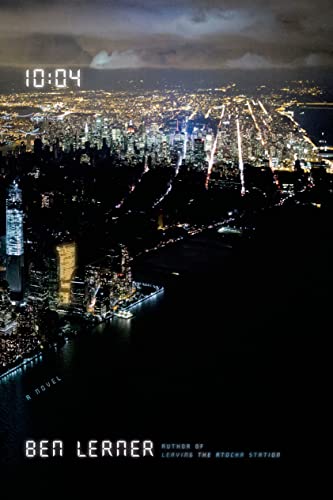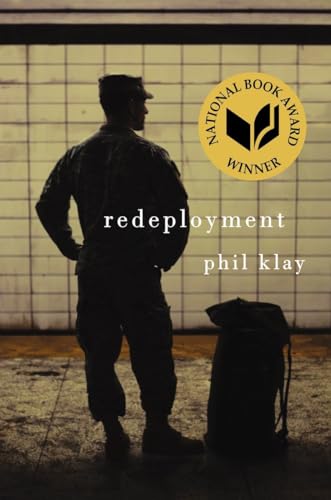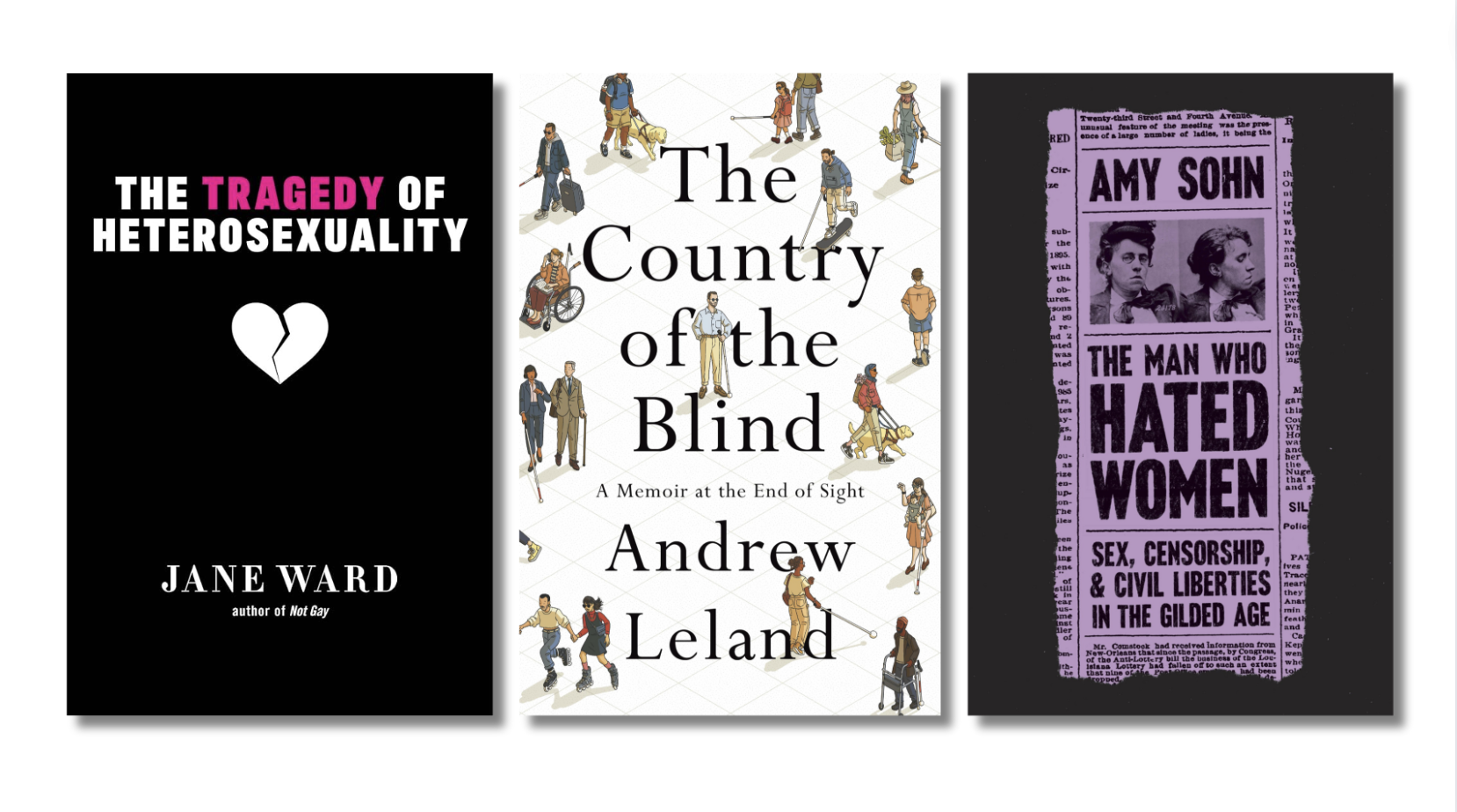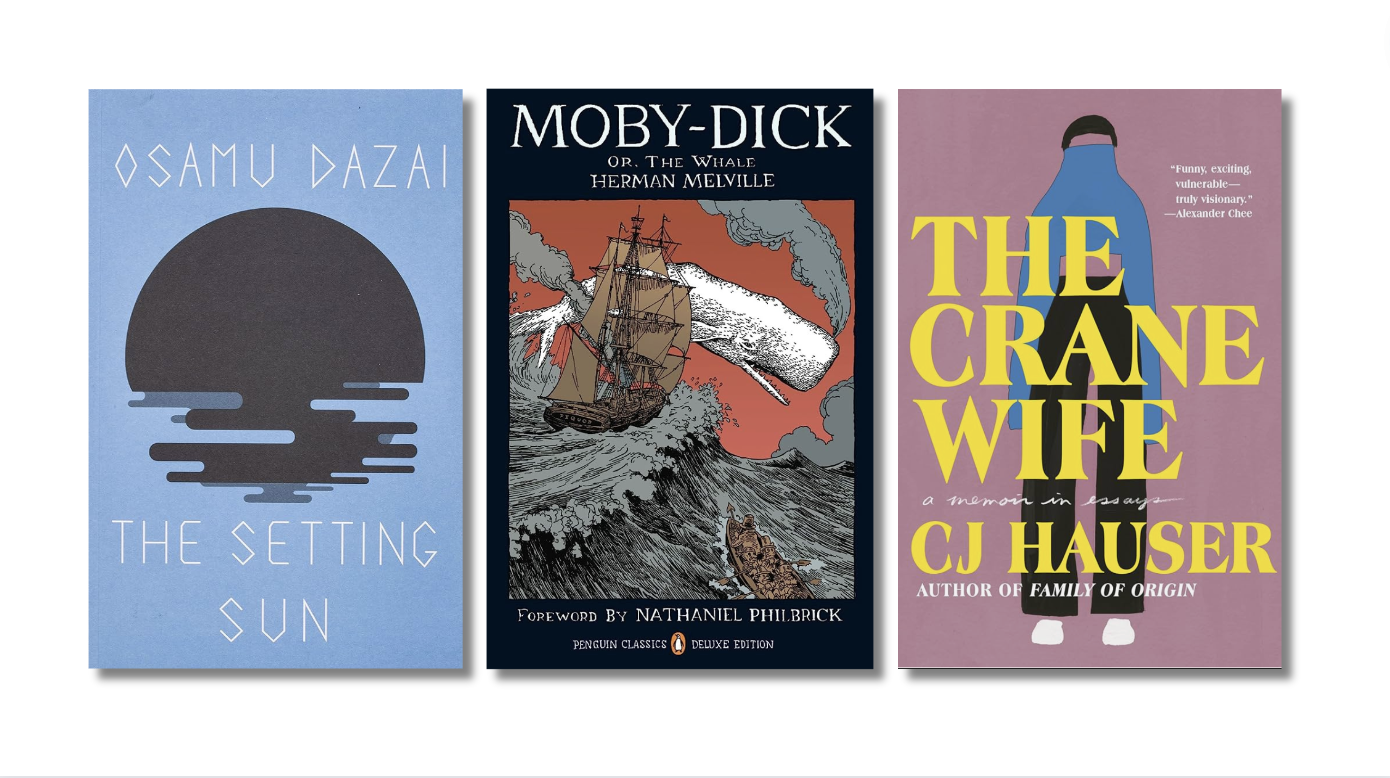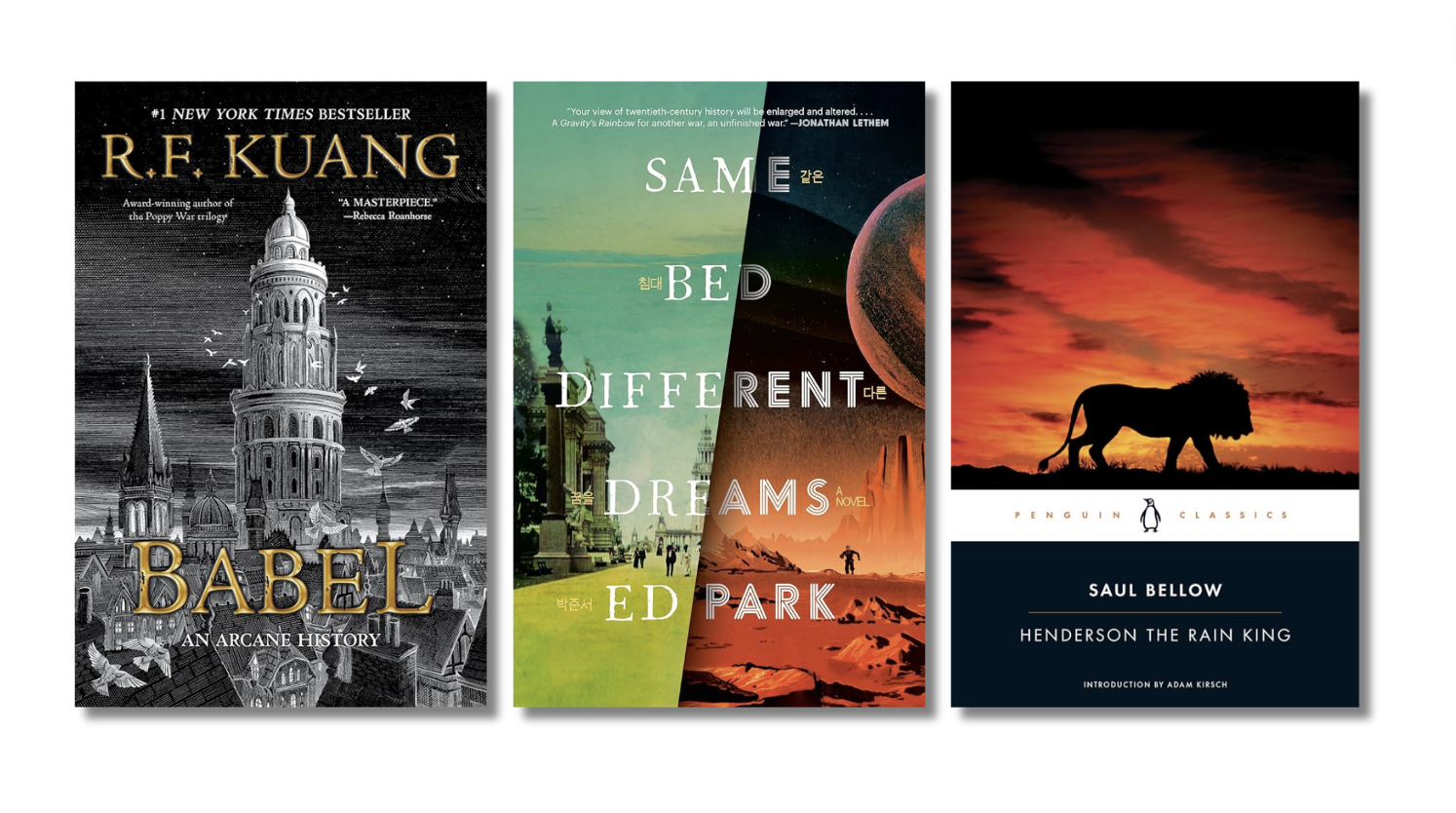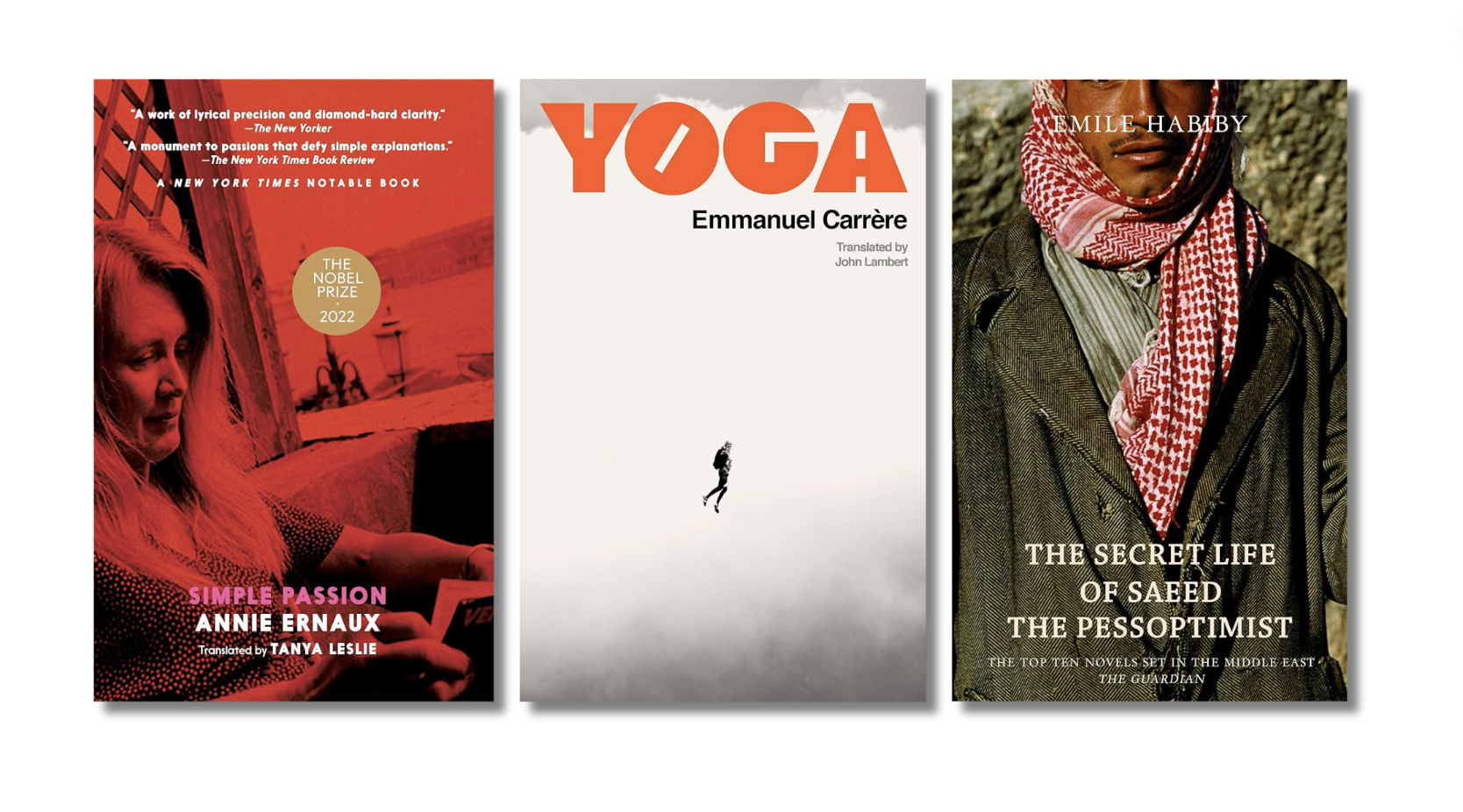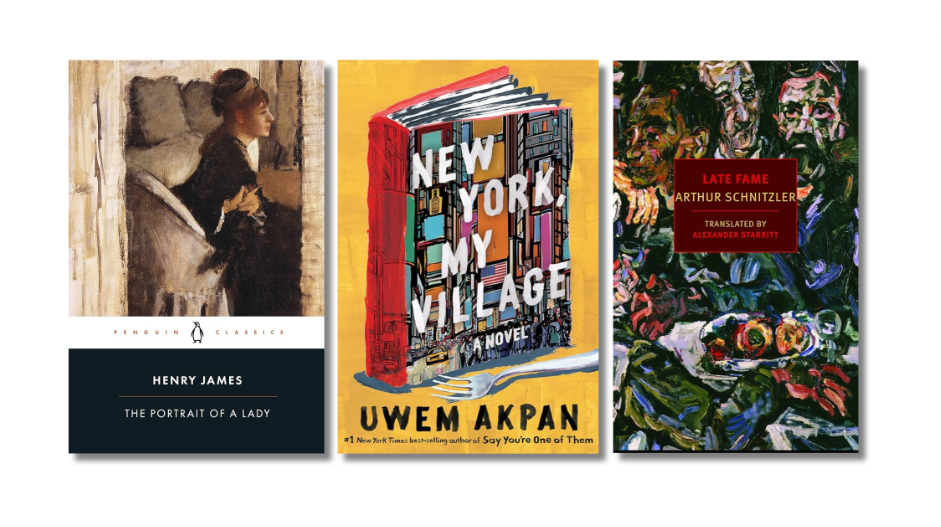Old School, by Tobias Wolff:
 This limpid novel offers up a vivid anatomy of the adolescent sensibility. The challenge in writing about high-school age kids — particularly the sort of generally well-off and healthy kids that populate this book — is that the whole world lies before them, and even if they fail, they have years to recover. The stakes always feel high to adolescents, but adults tend to look back on all but the worst dramas from that period with the wistfulness of veterans who have stared down life’s real problems. Wolff, though, manages to make the stakes inOld School feel high even to an adult reader by never condescending to his characters. He gives them baroque angsts and passionate urges, but he also gives them a sense of proportion and an innate understanding of their own moral failings. Wolff takes seriously the predicament of a narrator, at any age, who wants more than he has and is willing to sink into a morass of moral turpitude to get it. He allows his narrator to fail and to know that he’s failing. After visits by Robert Frost and Ayn Rand (both personalities are dramatized unforgettably here), some gamesmanship around a chance to meet Ernest Hemingway provides the narrator an opportunity to enact the sort of calamitous bad judgment that can lead to profound regret and tip one over into adulthood. Adulthood, the book seems to argue (and this is where Wolff’s lack of condescension to his teenage characters comes through most beautifully) is just childhood with greater responsibilities and without the benefit of an apparently limitless future. The stakes, we feel at the end of this book, were really as high as they felt all along. The child is father to the man. Our regrets stay with us. Dean Makepeace set up the visit with Hemingway and hinted at knowing him personally, but he had no acquaintance with him. The dean put himself into a mental prison as a result of that bit of dissembling, but how much different is that prison from the tortures of adolescence? We may run from ourselves, Wolff seems to say, but we’ll never get very far — which sounds like a curse, but looks like a blessing at the end of this affecting book.
This limpid novel offers up a vivid anatomy of the adolescent sensibility. The challenge in writing about high-school age kids — particularly the sort of generally well-off and healthy kids that populate this book — is that the whole world lies before them, and even if they fail, they have years to recover. The stakes always feel high to adolescents, but adults tend to look back on all but the worst dramas from that period with the wistfulness of veterans who have stared down life’s real problems. Wolff, though, manages to make the stakes inOld School feel high even to an adult reader by never condescending to his characters. He gives them baroque angsts and passionate urges, but he also gives them a sense of proportion and an innate understanding of their own moral failings. Wolff takes seriously the predicament of a narrator, at any age, who wants more than he has and is willing to sink into a morass of moral turpitude to get it. He allows his narrator to fail and to know that he’s failing. After visits by Robert Frost and Ayn Rand (both personalities are dramatized unforgettably here), some gamesmanship around a chance to meet Ernest Hemingway provides the narrator an opportunity to enact the sort of calamitous bad judgment that can lead to profound regret and tip one over into adulthood. Adulthood, the book seems to argue (and this is where Wolff’s lack of condescension to his teenage characters comes through most beautifully) is just childhood with greater responsibilities and without the benefit of an apparently limitless future. The stakes, we feel at the end of this book, were really as high as they felt all along. The child is father to the man. Our regrets stay with us. Dean Makepeace set up the visit with Hemingway and hinted at knowing him personally, but he had no acquaintance with him. The dean put himself into a mental prison as a result of that bit of dissembling, but how much different is that prison from the tortures of adolescence? We may run from ourselves, Wolff seems to say, but we’ll never get very far — which sounds like a curse, but looks like a blessing at the end of this affecting book.
The Sense of an Ending, by Julian Barnes:
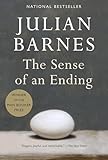 What’s chilling in this book, beyond the dramatization of the way memories are corrupted by time, is the notion that it’s possible to see one’s present self in a positive light and not realize how much one’s own past actions have negatively affected others. The selves we take pride in, the parts of us we’re willing to be readily identified by, this book reminds us, are filtered versions of ourselves. Over the course of the novel, the narrator strips away the layers of his own illusion — or rather, he has them stripped away from him by force. And that is probably what is most disturbing about this beveled gem of a book. We cherish the progressive notion that if there is a moral imbalance in our lives, we will address it, but how can we address what we’ve allowed ourselves to forget the existence of entirely? We bury our mistakes so successfully that we no longer feel accountable for atoning for them. Much of life is a détente between whom we want to think we are and whom we are. This book is a draught of cold air, a slap in the face, a wakeup call.
What’s chilling in this book, beyond the dramatization of the way memories are corrupted by time, is the notion that it’s possible to see one’s present self in a positive light and not realize how much one’s own past actions have negatively affected others. The selves we take pride in, the parts of us we’re willing to be readily identified by, this book reminds us, are filtered versions of ourselves. Over the course of the novel, the narrator strips away the layers of his own illusion — or rather, he has them stripped away from him by force. And that is probably what is most disturbing about this beveled gem of a book. We cherish the progressive notion that if there is a moral imbalance in our lives, we will address it, but how can we address what we’ve allowed ourselves to forget the existence of entirely? We bury our mistakes so successfully that we no longer feel accountable for atoning for them. Much of life is a détente between whom we want to think we are and whom we are. This book is a draught of cold air, a slap in the face, a wakeup call.
The Reluctant Fundamentalist, by Mohsin Hamid:
 The way the second-person narration functions in this novel is a thrill to behold. Hamid keeps things tense by keeping them indeterminate. Part of that tension springs from the extraordinary politeness and deliberateness of Changez’s overtures to his unheard interlocutor (“if you will permit me”) which read as sinister somehow — something more out of the register of “The Cask of Amontillado” than any book of etiquette. The very fact that that politeness scans as sinister is part of the driving engine of this book. The frisson one feels in reading The Reluctant Fundamentalist comes from the way Hamid implicates the reader in the narrator’s disillusionment. One is forced to interrogate one’s own assumption — the title leads us to it, archly — that the narrator has chosen the path of jihad. Could he not simply harbor non-violent objections to a way of life he’s come to disagree with? And his interlocutor, about whom we know so little — is he a regular civilian or an intelligence agent of some sort? I was spellbound by the artistry of a book that succeeds at the challenging task of making possible two diametrically opposed interpretations — that Changez is a jihadist, and that he is an ordinary man in an intense conversation who may be being radically misunderstood. As the book approaches its climactic final moment, the pitch of emotions rises subtly, inexorably, and one feels like a lobster in a slow-boiling pot. The book is a triumph of form, but it’s also an opportunity for an extended self-analysis on the reader’s part, and an argument for a more empathetic understanding of the lives of people on the margins.
The way the second-person narration functions in this novel is a thrill to behold. Hamid keeps things tense by keeping them indeterminate. Part of that tension springs from the extraordinary politeness and deliberateness of Changez’s overtures to his unheard interlocutor (“if you will permit me”) which read as sinister somehow — something more out of the register of “The Cask of Amontillado” than any book of etiquette. The very fact that that politeness scans as sinister is part of the driving engine of this book. The frisson one feels in reading The Reluctant Fundamentalist comes from the way Hamid implicates the reader in the narrator’s disillusionment. One is forced to interrogate one’s own assumption — the title leads us to it, archly — that the narrator has chosen the path of jihad. Could he not simply harbor non-violent objections to a way of life he’s come to disagree with? And his interlocutor, about whom we know so little — is he a regular civilian or an intelligence agent of some sort? I was spellbound by the artistry of a book that succeeds at the challenging task of making possible two diametrically opposed interpretations — that Changez is a jihadist, and that he is an ordinary man in an intense conversation who may be being radically misunderstood. As the book approaches its climactic final moment, the pitch of emotions rises subtly, inexorably, and one feels like a lobster in a slow-boiling pot. The book is a triumph of form, but it’s also an opportunity for an extended self-analysis on the reader’s part, and an argument for a more empathetic understanding of the lives of people on the margins.
Cloud Atlas, by David Mitchell:
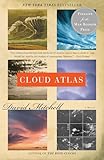 So much has been said about this extraordinary book that one wonders what one might add to the conversation. Still, it ought to be observed that in another writer’s hands, this material might have yielded a series of bloodless experiments. Instead, what we have is a full-blooded, big-hearted, human story. Mitchell’s triumph is to make every leap in time, every technological novelty feel utterly necessary, and to wring an astounding amount of emotion out of settings that could easily have felt cold and clinical. By scrupulously rendering the everyday reality of his characters’ lives, Mitchell earns the right to go to outlandish places in his telling. There is no ironic distance from the more conceptual material, no winking at the reader. He’s taking it all seriously, even the oddball stuff. We relax in the hands of a storyteller who will see to every detail and think through the larger implications of every choice. We settle in for the ride. And what a ride it is. One of the under-remarked aspects of this book is what a page-turner it turns out to be, how thoroughly engrossing. Mitchell’s talents seem to know no bounds.
So much has been said about this extraordinary book that one wonders what one might add to the conversation. Still, it ought to be observed that in another writer’s hands, this material might have yielded a series of bloodless experiments. Instead, what we have is a full-blooded, big-hearted, human story. Mitchell’s triumph is to make every leap in time, every technological novelty feel utterly necessary, and to wring an astounding amount of emotion out of settings that could easily have felt cold and clinical. By scrupulously rendering the everyday reality of his characters’ lives, Mitchell earns the right to go to outlandish places in his telling. There is no ironic distance from the more conceptual material, no winking at the reader. He’s taking it all seriously, even the oddball stuff. We relax in the hands of a storyteller who will see to every detail and think through the larger implications of every choice. We settle in for the ride. And what a ride it is. One of the under-remarked aspects of this book is what a page-turner it turns out to be, how thoroughly engrossing. Mitchell’s talents seem to know no bounds.
The Easter Parade, by Richard Yates:
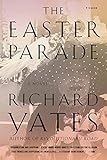 A book whose astringent worldview makes Revolutionary Road seem at times almost cheerful. These characters fail each other over and over, and fail themselves. I felt a keen sympathy for the divorced Walter Grimes when he’s visited by his young daughters at work. He’s not a reporter, the way they think he is; instead, he works at the copy desk. He’s not ashamed, just a little embarrassed, but their disappointment is palpable, and it sets the stage for this story of disillusionment on a grand scale. These sisters are estranged early and spend their lives running on parallel paths toward disappointment in men, in marriage, in careers, in life itself. They fail to meet, even when they’re in each other’s presence. There aren’t a lot of people to “like” in this book, but The Easter Parade provides the greatest antidote I can think of to the assertion that a book has to be populated with likable characters for it to be enjoyable. The impossible beauty in Yates’s sentences would be balm enough by itself, but when you combine it with the extraordinary perception about humanity on every page, one is left feeling less alone on the planet knowing that someone like Yates once walked around taking things in and caring enough about people in their flawed humanity to attempt to reproduce them convincingly on the page, however odious they could be at a given moment. He somehow loves everyone, even when he’s skewering them. The gorgeousness of Yates’s prose and the heartbreaking accuracy of his insight into our sometimes-dark hearts provide enormous emotional sustenance. The care he takes in getting his sentences right, in staring accurately into a moment, is its own kind of embrace. One need not get the milk of human kindness from Yates’s characters to get it from his books.
A book whose astringent worldview makes Revolutionary Road seem at times almost cheerful. These characters fail each other over and over, and fail themselves. I felt a keen sympathy for the divorced Walter Grimes when he’s visited by his young daughters at work. He’s not a reporter, the way they think he is; instead, he works at the copy desk. He’s not ashamed, just a little embarrassed, but their disappointment is palpable, and it sets the stage for this story of disillusionment on a grand scale. These sisters are estranged early and spend their lives running on parallel paths toward disappointment in men, in marriage, in careers, in life itself. They fail to meet, even when they’re in each other’s presence. There aren’t a lot of people to “like” in this book, but The Easter Parade provides the greatest antidote I can think of to the assertion that a book has to be populated with likable characters for it to be enjoyable. The impossible beauty in Yates’s sentences would be balm enough by itself, but when you combine it with the extraordinary perception about humanity on every page, one is left feeling less alone on the planet knowing that someone like Yates once walked around taking things in and caring enough about people in their flawed humanity to attempt to reproduce them convincingly on the page, however odious they could be at a given moment. He somehow loves everyone, even when he’s skewering them. The gorgeousness of Yates’s prose and the heartbreaking accuracy of his insight into our sometimes-dark hearts provide enormous emotional sustenance. The care he takes in getting his sentences right, in staring accurately into a moment, is its own kind of embrace. One need not get the milk of human kindness from Yates’s characters to get it from his books.
10:04, by Ben Lerner:
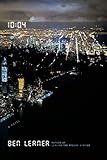 Among the many pleasures in reading this astonishingly nimble book is watching to see where this consciousness will take you. There are so many surprises here, so many things seen afresh with that particular sort of attention that Ezra Pound calls for in ABC of Reading, wherein to know a fish really well is to know it back and forth, to study it for weeks until it is a moldering pile of bones, but one has learned something about it. The thing that’s known in this case is the way the mind works, the tortuous byways one’s thoughts can wend on the path to an ever-receding but tantalizing total understanding of the workings of the universe for a fleeting moment. Lerner gives his narrator extreme perceptiveness, hyper-articulacy, great curiosity, and a laconic voice that suggests more emotional exposure at any given moment than he is prepared to handle. The triumph of this book — with its impacted sentences that involute on themselves and interrogate the meanings of words and pack as much signification as possible into each unit of cognition — is to present observations of such freshness, originality, and vivacity that they instantly feel like old wisdom one has had access to for years. Everything in this book one hadn’t seen before Lerner wrote it suddenly becomes an article of longstanding faith, a core principle one has lived by. I was particularly captivated by his discussion of the numinous power in “totaled” art, damaged works that have been declared valueless by an insurance company. Lerner spins the word “totaled” into a captivating riff that extends in several meditative directions. Seeing that art for what it was was just one of many new ways of perceiving the world that this book gave me as gifts. But the greatest gift this book gives is its willingness to slow everything down, to stop time for long enough to get everything thought and everything said that can be thought and said in a given moment. This preoccupation with accuracy and comprehensiveness makes the narrator a prison of his perceptions at times, because he sees with a fly’s eyes, taking in every stimulus around him and folding it into whatever thesis he is constructing in his mind at a given moment. In a culture that insists on speed and thoughtless consumption, Lerner’s willingness to parse a moment down to its component parts is a welcome corrective.
Among the many pleasures in reading this astonishingly nimble book is watching to see where this consciousness will take you. There are so many surprises here, so many things seen afresh with that particular sort of attention that Ezra Pound calls for in ABC of Reading, wherein to know a fish really well is to know it back and forth, to study it for weeks until it is a moldering pile of bones, but one has learned something about it. The thing that’s known in this case is the way the mind works, the tortuous byways one’s thoughts can wend on the path to an ever-receding but tantalizing total understanding of the workings of the universe for a fleeting moment. Lerner gives his narrator extreme perceptiveness, hyper-articulacy, great curiosity, and a laconic voice that suggests more emotional exposure at any given moment than he is prepared to handle. The triumph of this book — with its impacted sentences that involute on themselves and interrogate the meanings of words and pack as much signification as possible into each unit of cognition — is to present observations of such freshness, originality, and vivacity that they instantly feel like old wisdom one has had access to for years. Everything in this book one hadn’t seen before Lerner wrote it suddenly becomes an article of longstanding faith, a core principle one has lived by. I was particularly captivated by his discussion of the numinous power in “totaled” art, damaged works that have been declared valueless by an insurance company. Lerner spins the word “totaled” into a captivating riff that extends in several meditative directions. Seeing that art for what it was was just one of many new ways of perceiving the world that this book gave me as gifts. But the greatest gift this book gives is its willingness to slow everything down, to stop time for long enough to get everything thought and everything said that can be thought and said in a given moment. This preoccupation with accuracy and comprehensiveness makes the narrator a prison of his perceptions at times, because he sees with a fly’s eyes, taking in every stimulus around him and folding it into whatever thesis he is constructing in his mind at a given moment. In a culture that insists on speed and thoughtless consumption, Lerner’s willingness to parse a moment down to its component parts is a welcome corrective.
My Sunshine Away, by M.O. Walsh:
 This gutsy book (coming in 2015) examines the effects of a rape on both the victim and the community she grows up in in Louisiana. The identity of her attacker is unknown. The narrator is a classmate of hers who also happens to have had an obsessive crush on her for years. Right away, we know we’re in complicated territory. Like Lolita and The Stranger before it, My Sunshine Away understands that every confession is also an attempt to convert listeners to the speaker’s worldview. We’re not sure whether this confession will end in a revelation of evil or renew our faith in humanity, but the deft structural control, artful prose, and extraordinary psychological acuity on display mean we’re riveted either way. As we parse the narrator’s words to determine what he’s capable of, we conspire with him to direct attention away from the person who needs it the most, namely the victim. Walsh captures how the fear of discovery in untidy urges can turn ordinary people into monsters of pragmatism. The last third snaps with a tautness of a thriller, and Walsh keeps the reader guessing until the very end, as the best mystery writers do, but this is literature of the highest order, an elegy for lost youth everywhere and an argument for empathy at all costs. This book asks the essential questions: How much responsibility do we have to each other? Can we reassemble the pieces of broken lives? Walsh hints at answers, but none is more potent than the fact that he’s engaging such profound questions in the first place.
This gutsy book (coming in 2015) examines the effects of a rape on both the victim and the community she grows up in in Louisiana. The identity of her attacker is unknown. The narrator is a classmate of hers who also happens to have had an obsessive crush on her for years. Right away, we know we’re in complicated territory. Like Lolita and The Stranger before it, My Sunshine Away understands that every confession is also an attempt to convert listeners to the speaker’s worldview. We’re not sure whether this confession will end in a revelation of evil or renew our faith in humanity, but the deft structural control, artful prose, and extraordinary psychological acuity on display mean we’re riveted either way. As we parse the narrator’s words to determine what he’s capable of, we conspire with him to direct attention away from the person who needs it the most, namely the victim. Walsh captures how the fear of discovery in untidy urges can turn ordinary people into monsters of pragmatism. The last third snaps with a tautness of a thriller, and Walsh keeps the reader guessing until the very end, as the best mystery writers do, but this is literature of the highest order, an elegy for lost youth everywhere and an argument for empathy at all costs. This book asks the essential questions: How much responsibility do we have to each other? Can we reassemble the pieces of broken lives? Walsh hints at answers, but none is more potent than the fact that he’s engaging such profound questions in the first place.
Small Mercies, by Eddie Joyce:
 Small Mercies, also coming in 2015, is the Staten Island novel you didn’t know you were waiting to read. It’s also the best novel yet at capturing the human suffering that resulted from the 9/11 attacks on the World Trade Center. Rather than writing a safe-remove “systems” novel about the roots and impacts of the attacks, Joyce takes on the more ambitious task of bringing vividly into focus one of the 3,000 people who died that day and the family members and friends who pressed on in the wake of their unspeakable loss. In telling the story of the demise of beloved Bobby Amendola — son, brother, husband, friend, lover of life, Staten Islander, firefighter — and the divergent ways his loved ones responded to it, Joyce tells the story of all New York during that heartbroken, haunted period. Joyce understands the role one’s native place plays in the development of one’s character, and he has a gift for choosing resonant details and peeling back the layers of emotion in ordinary moments. He builds his story around the negative space created by Billy’s absence, alternating perspectives throughout to provide a kaleidoscopic portrait of a people in grief. Small Mercies effortlessly tackles weighty subjects — the value of the bonds of family in changing times, what debts we owe the dead and ourselves, what to make of the American Dream of prosperity in an era when America’s influence is on the wane — without being weighed down by its own seriousness of purpose. The high-spirited characters in this book have such a good time even when grieving that it’s easy to fall in love not only with Billy’s memory, but with most of the flawed-but-human people who will carry that memory around in them for the rest of their days.
Small Mercies, also coming in 2015, is the Staten Island novel you didn’t know you were waiting to read. It’s also the best novel yet at capturing the human suffering that resulted from the 9/11 attacks on the World Trade Center. Rather than writing a safe-remove “systems” novel about the roots and impacts of the attacks, Joyce takes on the more ambitious task of bringing vividly into focus one of the 3,000 people who died that day and the family members and friends who pressed on in the wake of their unspeakable loss. In telling the story of the demise of beloved Bobby Amendola — son, brother, husband, friend, lover of life, Staten Islander, firefighter — and the divergent ways his loved ones responded to it, Joyce tells the story of all New York during that heartbroken, haunted period. Joyce understands the role one’s native place plays in the development of one’s character, and he has a gift for choosing resonant details and peeling back the layers of emotion in ordinary moments. He builds his story around the negative space created by Billy’s absence, alternating perspectives throughout to provide a kaleidoscopic portrait of a people in grief. Small Mercies effortlessly tackles weighty subjects — the value of the bonds of family in changing times, what debts we owe the dead and ourselves, what to make of the American Dream of prosperity in an era when America’s influence is on the wane — without being weighed down by its own seriousness of purpose. The high-spirited characters in this book have such a good time even when grieving that it’s easy to fall in love not only with Billy’s memory, but with most of the flawed-but-human people who will carry that memory around in them for the rest of their days.
Redeployment, by Phil Klay:
 Klay does outstanding work to make the familiar unfamiliar and the unfamiliar familiar. We think we know war stories, and he makes us see that we don’t know these war stories. Whatever our preconceptions about war are, Klay estranges us from them. The bewildering array of technologies, the arcane system of acronyms, the rules of procedure in the contemporary theater of war, with military contractors, ubiquitous improvised explosive devices, and a direct engagement with civilians that dwarfs even that in Vietnam — all these are, for the reader who has never seen them personally, deeply unfamiliar, and Klay makes that unfamiliarity palpable.
Klay does outstanding work to make the familiar unfamiliar and the unfamiliar familiar. We think we know war stories, and he makes us see that we don’t know these war stories. Whatever our preconceptions about war are, Klay estranges us from them. The bewildering array of technologies, the arcane system of acronyms, the rules of procedure in the contemporary theater of war, with military contractors, ubiquitous improvised explosive devices, and a direct engagement with civilians that dwarfs even that in Vietnam — all these are, for the reader who has never seen them personally, deeply unfamiliar, and Klay makes that unfamiliarity palpable.
In the end, though, war stories or not, these are stories about people in different states of crisis on either side of a divide, American or Iraqi, and Klay makes their experiences feel familiar enough to allow an enormous transference of empathy. The way the soldiers eat cobbler at the end of “Frago” stands in for so much about the way they try to preserve their humanity in the midst of inhuman psychological challenges. And the end of the title story, “Redeployment,” is a heartbreaker, with the narrator’s mind fuzzy as he tries to remember what he was going to do with the body of the beloved dog he has killed. It’s a perfect encapsulation of the mental disturbance he is going to have to deal with going forward, as he tries to live a normal life.
When the narrator of “After Action Report” says, “It was another three weeks before I got home and everybody thanked me for my service. Nobody seemed to know exactly what they were thanking me for,” it captures the predicament of civilians dealing with veterans in an era when there isn’t pervasive military service, and wars are fought on distant shores for reasons that remain abstract or inscrutable to ordinary people, and the experience of war, in part due to the technological advances, departs so radically from the one described in history books or movies. Part of this book’s argument is that the story of the senselessness of war needs to be told afresh in every generation for it to be heard at all.
More from A Year in Reading 2014
Don’t miss: A Year in Reading 2013, 2012, 2011, 2010, 2009, 2008, 2007, 2006, 2005
The good stuff: The Millions’ Notable articles
The motherlode: The Millions’ Books and Reviews
Like what you see? Learn about 5 insanely easy ways to Support The Millions, and follow The Millions on Twitter, Facebook, Tumblr.
